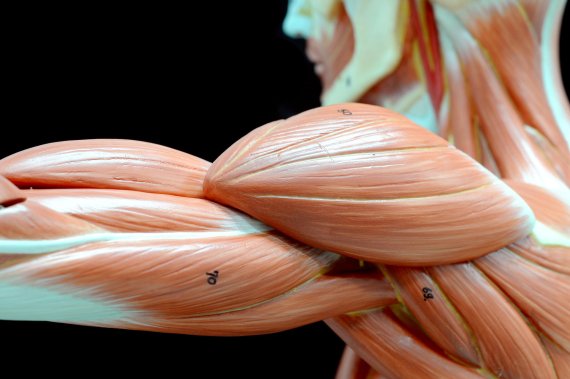
Regeneration is part of the training plan, because only in the breaks can the human organism, which is stressed by the sport, recover from the loads or gradually adjust to the permanent stress. The correct dosage of the training serves therefore not only the physical health and the training success but also the mental health.
The scientific basis for this fact is the stimulus threshold rule. The underlying stimulus threshold law was recognized in 1895 by the German anatomist Wilhelm Roux and is considered the basis of training theory in sports. According to this, stress stimuli triggers different effects on the body depending on their intensity (stimulus threshold).
Training stimuli are divided into the following four levels:
- 1st stage: Subliminal stimuli do nothing.
- 2nd stage: Little suprathreshold stimuli only cause maintenance of the training state.
- 3rd stage: Medium to high suprathreshold stimuli increase the effect by triggering the desired physiological and anatomical changes in the body.
- 4th stage: Very high-threshold stimuli do the opposite - they cause unwanted changes and harm the body.
In order to achieve the desired training success, the stimuli must therefore not be too low, but also not too strong. They must be applied in the right dose and increased accordingly, from a health point of view preferably continuously. In high-performance sports, a sudden increase in training stimuli is also used.

The body maintains balance in its various systems, for example in the blood circulation and energy balance, through self-regulation. In the event of a deficiency due to stress, whether physical or mental, it compensates itself.
It only adapts to new conditions, e.g. through changes in diet, increased muscular strain, oxygen consumption or similar, if they persist at a certain intensity over a longer period of time. The person who wants to lose weight takes advantage of this by eating wholesome, low-fat food. And the athlete uses this by continuing to train with a strengthened cardiovascular system and more muscle mass, but only after an appropriate recovery period.
But what is adequate?
Depending on age, fitness and any previous illnesses, regeneration takes different lengths of time for each individual. The body must restore its temperature balance, which is regulated by sweating but at the same time is out of balance. It has to restore its energy balance, especially by consuming carbohydrates and replenishing the lost minerals. In the muscles, destroyed cells have to be rebuilt. The brain must process and store new movement sequences.
If the muscles have been particularly stressed by sport, a regeneration period of 24 to 48 hours is recommended. Beginners should exercise twice a week, advanced athletes can exercise up to five times a week or two to three times at high intensity.
If the muscles have been completely exhausted or overworked, e.g. by an intense mountain tour, they even need three to four days of recover. Competitive athletes regenerate much faster and do a lot of endurance training, regardless of their sport.
If, after this urgently needed regeneration, stimuli flow into the body at a slightly increased intensity, e.g. by stressing the newly formed muscle cells, these remain and strengthen (thicken) the existing muscles. Otherwise, they are broken down again after a certain time.
If you continue to train before the cells are formed, you prevent the muscles from building up. Even more: You destroy more muscles than your body can build new ones. The performance level drops. In the long run, this also damages the functions of the organism. The technical term for this is "overtraining".
If the overload continues, the athlete becomes ill. Symptoms of overtraining are an increased pulse rate both at rest and under stress, headaches and sleep disturbances.
If the desired success in training fails to materialize, however, the lack of regeneration is not necessarily the cause. Maybe it's a lack of technique or the right training program?
However, there are other ways to avoid overtraining besides taking breaks from training, namely by boosting the regeneration process.
Nutrition
If you eat only sugar or saturated fats while doing a lot of sports, you are not doing your body any good. A healthy, functioning body needs protein, healthy fats, complex carbohydrates and vitamins.
Sleep
The body regenerates when properly rested. That doesn't mean picking up your smartphone at night, checking your Instagram feed for 30 minutes, and then going back to sleep. As early as 30 minutes before bedtime, you should put your smartphone away. Going to the bathroom before bed is also recommended, as it makes it less likely to wake up at night.
Avoid stress
Stress is not good for our body and leads to lack of sleep. It is important to take time for yourself and your hobbies to switch off. The good thing about sports: you effectively reduce stress! Generally we think too often of nutrition or physical causes if we are not feeling well, but the cause is often stress.
Against stress helps not only weight training or running, but also meditation, yoga or a relaxing massage.

Overtraining damages the body. So if you really want to train effectively, you should take regular breaks from training. Being ambitious is good, but sporting goals should be pursued in the long term and only those who recover well can achieve the desired results.
Below we have answered the most common questions about overtraining.
Overtraining often manifests itself through fatigue, severe muscle soreness and cardiovascular problems. These are serious warning signals of your body.
The right warm-up exercises help prevent sore muscles, but they hardly help against overtraining. If you train your chest at a high intensity three times a week, you are entering the realm of overtraining despite warming up.
It depends on the experience and the type of training. If you do intensive bodybuilding, you should not train the same muscle two days in a row. Jogging two days in a row, on the other hand, is not a problem. The World Health Organization (WHO) recommends 2.5 hours per week or 75 minutes at high intensity.
- ISPO awards
- Mountain sports
- Bike
- Design
- Retail
- Fitness
- Health
- ISPO Job Market
- ISPO Munich
- ISPO Shanghai
- Running
- Brands
- Sustainability
- Olympia
- OutDoor
- Promotion
- Sports Business
- ISPO Textrends
- Triathlon
- Water sports
- Winter sports
- eSports
- SportsTech
- OutDoor by ISPO
- Heroes
- Transformation
- Sport Fashion
- Urban Culture
- Challenges of a CEO
- Trade fairs
- Sports
- Find the Balance
- Product reviews
- Newsletter Exclusive Area
- Magazine






